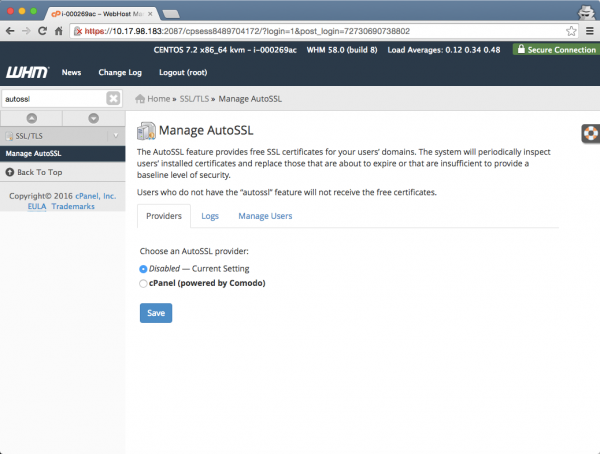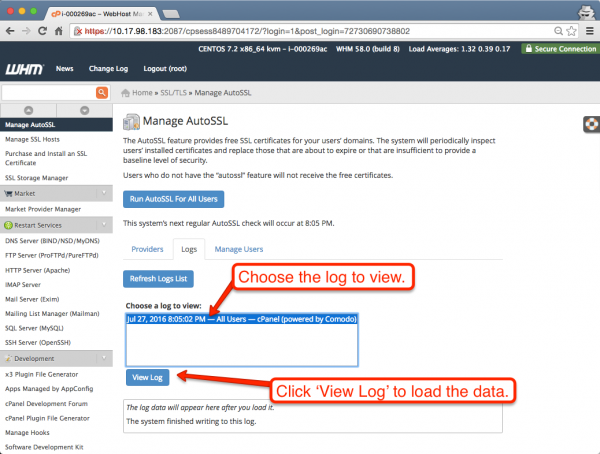For many years, cPanel envisioned a feature that would significantly enhance the security and safety of the entire internet. This vision has undergone substantial development and adaptation, reflecting numerous changes within both the industry and the company itself. After extensive re-writes and integrations across various cPanel & WHM systems and the cPanel store, this groundbreaking feature is finally here. With the introduction of cPanel & WHM version 58, we proudly present AutoSSL, a truly remarkable addition to our comprehensive suite of features.
What is AutoSSL?
AutoSSL represents a pivotal solution addressing one of the most significant challenges faced by cPanel & WHM users: the complexities of SSL certificate installation and renewal. With AutoSSL, these traditional pain points are entirely eliminated. Users no longer need to complete cumbersome forms or manually copy certificate files. Once AutoSSL is enabled, your websites are automatically secured with a free, Domain Validated SSL certificate. A particularly exciting aspect is the continuous nature of this security; your SSL coverage will never lapse, as a new, free SSL certificate is automatically requested and installed upon expiration, ensuring uninterrupted protection.
How to Enable AutoSSL
Enabling AutoSSL is a straightforward process. Within the WHM interface, navigate to the AutoSSL section. Simply adjust the toggle to select "cPanel," and then click "Save."

Upon activation, your server will automatically perform the following actions:
- Add a new feature called “AutoSSL” to WHM >> Packages >> Feature Manager.
- Configure a cronjob (located at
/etc/cron.d/cpanel_autossl) to manage the automatic downloading and installation of new SSL certificates for all your hosted domains.
It is important to note that certain limitations may exist when managing a very large number of domains, which are beyond cPanel's direct control. Further details can be found in our official documentation.
Troubleshooting AutoSSL Issues
Should you encounter any issues with the AutoSSL application, comprehensive logs are readily available directly within the WHM interface. After the initial execution of the cronjob, you will find the logs conveniently listed under the ‘Logs’ tab. To review a specific log, simply select the desired log file and click ‘View Log’.

Future Developments for AutoSSL
cPanel & WHM version 58 is anticipated to reach its RELEASE status very soon, meaning this powerful feature will become accessible to an increasing number of our valued customers. One of the most frequently requested enhancements for AutoSSL is the integration of support for Let’s Encrypt, which is actively being pursued.
Additionally, significant efforts are underway to incorporate SNI (Server Name Indication) support across cPanel, WHM, and Webmail. Once this development is complete, the free SSL certificates provided by AutoSSL will extend to secure all cPanel, WHM, and webmail logins, effectively resolving this long-standing feature request. While this crucial update may not be available until cPanel & WHM version 62, its implementation is a definite priority.
Upgrade to cPanel & WHM v58 and Beyond to Utilize AutoSSL
AutoSSL was introduced as a core new feature in cPanel & WHM version 58. Therefore, if your systems are still running CentOS 5 or CentOS 6 32-bit, you will unfortunately not be able to leverage the benefits of this innovative security enhancement. It's important to remember that cPanel & WHM v56 marked the end of support for CentOS 5. To take full advantage of AutoSSL and its automated security features, migrating your server is highly recommended. Our recent Server Configuration additions to the Transfer Tool have made the migration process easier than ever before, providing a seamless path to enhanced security. There's no better time to upgrade and secure your websites with AutoSSL.




